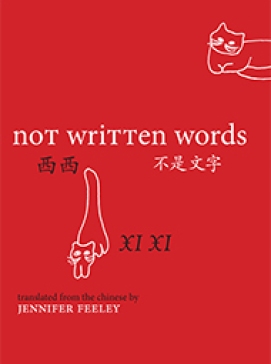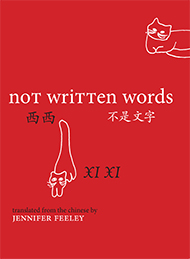 The National Endowment for the Arts website has published its interview with Jennifer Feeley. “When Jennifer Feeley was in high school,” they introduce her,
The National Endowment for the Arts website has published its interview with Jennifer Feeley. “When Jennifer Feeley was in high school,” they introduce her,
one of her creative writing teachers encouraged students to read as many books of poetry as possible. It was during forays to the library in search of poetry volumes that Feeley stumbled upon 100 Poems from the Chinese, translated by Kenneth Rexroth … “I fell in love with them, and wanted to be able to read the originals one day,” she said.
In the interview Feeley discusses how she handles the word play of poetry by Hong Kong writer Xi Xi 西西 —
She’s an author whose work hinges on wordplay that is firmly rooted in the Chinese language, and that she uses as both a rhetorical device and for humorous effect. It seems impossible to translate such wordplay into English.
But I love a good challenge.
— and also offers a great metaphor for understanding the work of translation: knitting.
I think of the original text as the pattern the author has made, let’s say [for a] hat. My translation is looking at the pattern and making my own hat. Of course it’s going to turn out differently depending on different factors. What kind of needles I use—do I use bamboo or metal? What’s the needle size? What kind of yarn do I use? What’s the weight of the yarn? What kind of fibers? What kind of color? I always drop stitches and add stitches—these are the accidental mistakes that happen. Sometimes they make the text better; sometimes they’re just mistakes.
I use that to think about the labor in translation. It’s so easy to say, “You’re not the real author.” But in fact when you’re the translator, that’s 100 percent your labor. If I’m knitting a hat, the hat is 100 percent my labor. Yes, I’m basing it off this pattern that someone else wrote and of course it’s going to look different than the product they originally made. But the hat I’ve made is all my work. I have the sore fingers.
Click the image above for the full interview.









